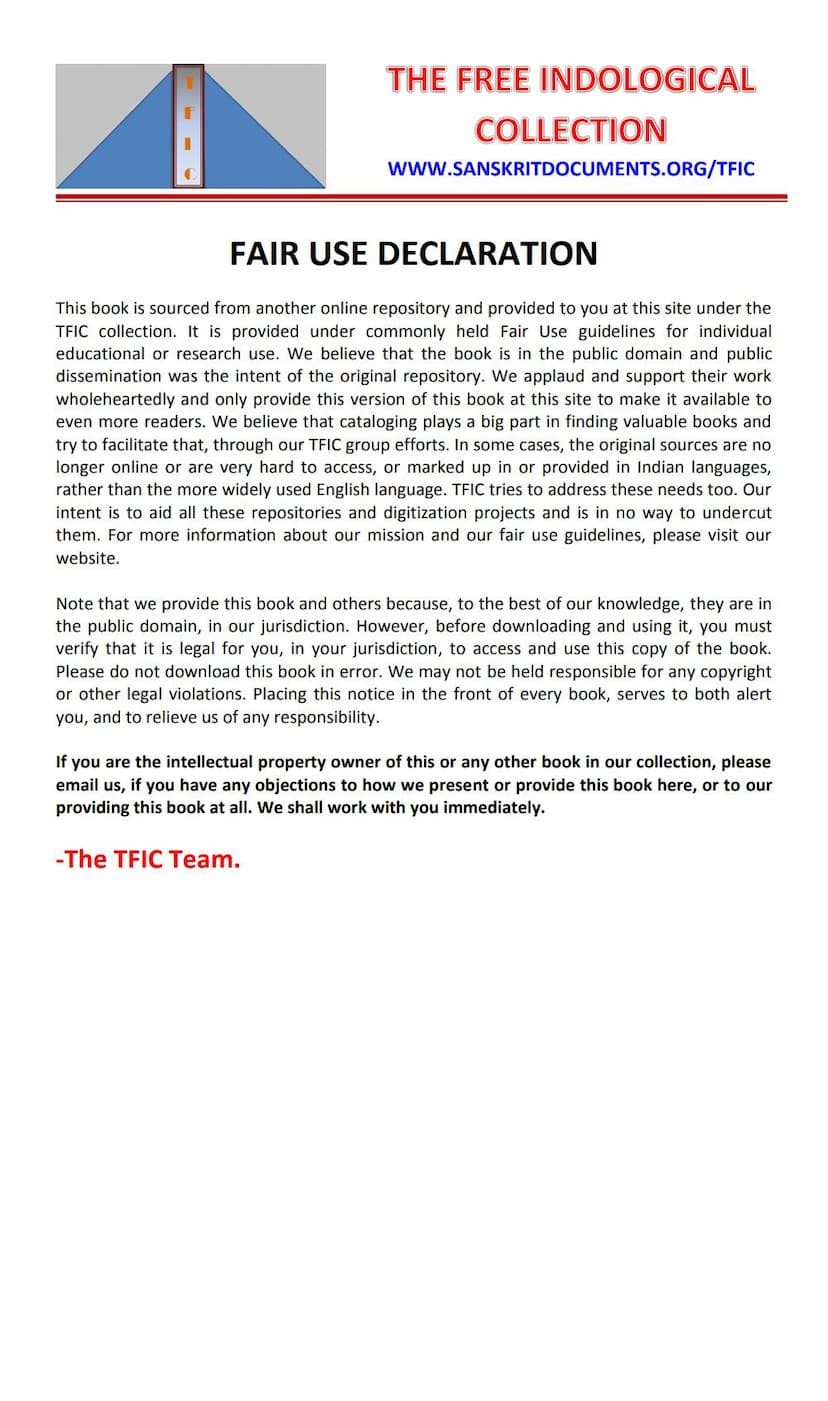Study In Karma
Added to library: September 2, 2025

Summary
This document is a reproduction of Annie Besant's "A Study in Karma," published by Theosophist Office, Adyar, Madras, India. The book explores the concept of karma from a Theosophical perspective, emphasizing its role as a universal law of nature.
Here's a comprehensive summary of the key themes and arguments presented in the initial chapters (as provided):
Core Concepts of Karma:
- Karma as Law, Not Fate: Besant emphasizes that karma is not a rigid, predetermined fate imposed by an external entity. Instead, it is a natural law, akin to the law of gravitation or electricity. This means it operates according to inherent principles and can be understood and worked with, rather than being passively endured.
- Universal Causation: Karma is presented as the Law of Cause and Effect, the fundamental principle underlying all other laws. Everything that happens is an effect of a previous cause, and every action creates a subsequent cause. This inter-relation of all things is the essence of karma.
- The Eternal Now and Succession: Karma is eternal because it represents the inter-relation of all that exists. While in the unmanifested state (the "All"), everything exists simultaneously. In manifestation, this inter-relation appears as a succession of cause and effect, experienced through time and space.
- Interference with Karma: Besant clarifies that one can "interfere" with karma, not by breaking the law, but by understanding it and using other forces to counteract or redirect its effects. Just as one can build a buttress against the force of gravitation, one can modify the consequences of past actions by introducing new causes and conditions through knowledge and conscious effort.
- Karma is not Punishment, but Consequence: Natural laws, including karma, do not punish; they simply produce invariable sequences of results based on given conditions. If the results are undesirable, the preceding conditions must be changed.
Distinguishing Natural and Man-Made Laws:
- Besant draws a clear distinction between natural laws and man-made (artificial) laws.
- Natural laws are eternal, unchanging, universal, and operate as sequences where a given cause invariably produces a specific effect. Their consequence is inherent in the cause.
- Man-made laws are changeable, local, and enforced by external penalties. Their effectiveness depends on the recognition of authority and can often be avoided.
The Mechanism of Karma:
- Man's Three Worlds: Humans operate in three interconnected worlds: the physical, the emotional (astral), and the mental. Karma is created in each of these through action, desire, and thought, respectively.
- Thought as the Builder: Thought is a particularly potent factor in creating karma. Repeated thoughts create vibrations in the mental body, which in turn form habits. These habits, once established, can influence future actions almost automatically. By consciously choosing and cultivating beneficial thought-habits, individuals can build their character.
- Will vs. Desire:
- Desire is the unbridled energy of the Self, drawn by external objects. It is elemental and often non-rational.
- Will is the controlled and guided energy of the Self, directed by reason.
- Desires can be transformed into Will through conscious effort and the application of thought.
- Activity as the Third Thread: Action is the outward expression of thought and desire, and it directly impacts the environment, creating reactions (karma). The reaction of thoughts on oneself builds character, the reaction of desires brings opportunities, and the reaction of activities shapes one's environment.
Practical Application and Freedom:
- Knowledge is Freedom: The central message is that knowledge of natural laws, including karma, is the key to freedom. By understanding the conditions that lead to certain results, individuals can consciously create the conditions that produce desired outcomes.
- Modifying Character: While one cannot change the character inherited from past lives, one can modify and improve it through conscious thought and effort.
- Mastering Desire: Desires can be managed and transformed through focused thinking and the deliberate cultivation of new emotional habits.
- Environmental Influence: While environment is a significant factor, it is not entirely deterministic. Individuals can influence their environment through their thoughts, desires, and actions.
- Collective Karma: The principles of karma also apply to groups such as families and nations. Collective actions, traditions, and ideals create a shared karmic atmosphere that influences individuals within the group.
In essence, Besant's "A Study in Karma" aims to demystify karma, presenting it not as a cruel or arbitrary force, but as a scientific law that, when understood, empowers individuals to take conscious control of their lives and their evolution. The book stresses the importance of self-examination, the power of thought, and the active application of knowledge to shape one's destiny.